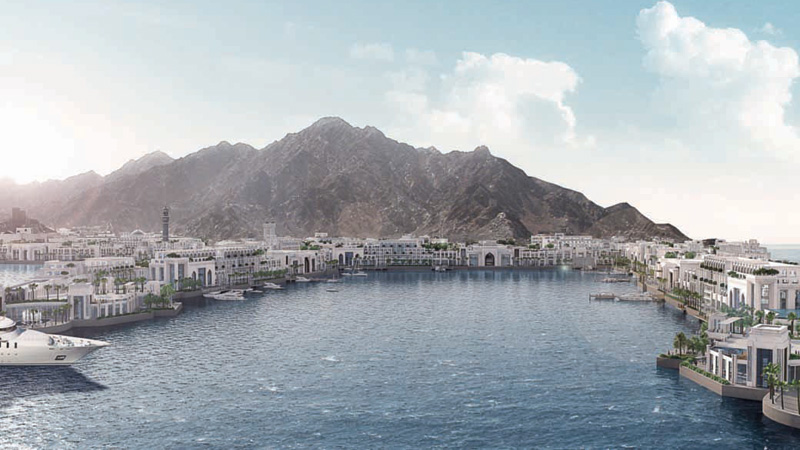

Conrad Prabhu -
Muscat, JAN 8 -
2019 will see the Omani government double down on efforts to accelerate the growth of the non-oil economy through a greater emphasis on economic diversification, coupled with the implementation of ‘quick-win’ initiatives proposed under the Tanfeedh programme.
According to a snapshot on the 2019 State Budget provided by global professional services firm EY, measures have been set in place to boost economic growth and diversification. This builds on gains already garnered on the road to the creation of a stronger non-oil economy, it said.
“Measures introduced by the Government to boost non-oil revenues, supported by an increased efficiency in controls implemented on public expenditure, have notably reduced the budget deficit in recent years. The actual deficit for 2017 was RO 3.5b ($9.1b). The estimated actual deficit for 2018 is RO 2.9b ($7.5b), whereas the budget deficit for 2018 was RO 3b ($7.8b). The budget deficit for 2019 is expected to be RO 2.8b ($7.3b),” EY stated in its overview on the 2019 Budget.
The role of Tanfeedh — The National Programme for Enhancing Economic Diversification — in fuelling non-oil economic growth is emphasised in the Budgetary Framework statement of the Ministry of Finance. The Budget 2019 includes allocations approved for the five targeted sectors identified by Tanfeedh, namely manufacturing, logistics, tourism, fisheries and mining sectors, says EY, noting in particular the pivotal role accorded to the private sector in providing finance and investments required to execute these initiatives.
“Besides financing certain essential projects, the Government is also taking steps to focus on facilitating procedures designed to improve the business environment and providing support to the respective sectors,” EY stated.
Oman’s commitment to growing the non-oil economy, according to the consultancy firm, is evident from the substantial portfolio of projects and initiatives implemented in recent years by the government, private sector or relevant State-Owned-Enterprises (SOEs).
Notable examples in the tourism sector include the landmark Madinat Al Irfan project and Mina Sultan Qaboos Waterfront project. In the manufacturing sector, projects in various stages of implementation include the Liwa Plastics Industries Complex, a steel factory, and a pharmaceutical plant. The logistics sector is witnessing the development of the Khazaen Economic City and the Salalah Port expansion project, among other initiatives. In the fishery sector, a number of initiatives are under way that support the establishment of fisheries infrastructure and aquaculture projects. Likewise, the mining sector has received a shot in the arm with the commencement of a major copper mining project, and plans for ceramic tile production plant as well.
According to EY, ‘In-Country Value’ (ICV) initiatives have also been given due importance in Budget 2019. “The Government continues to implement various recommendations by the National Programme for Enhancing Economic Diversification (Tanfeedh). Furthermore, as part of its policy to enhance the skills of the local population, the National Training Fund shall continue in 2019 in an effort to create employment capacity in Oman and work towards bridging the skills gap between the education system and requirements of the job market,” the consultancy firm noted.
The Budget Statement of the Ministry of Finance lists a number of measures set out by the government in revitalising non-oil revenues. The measures seek to, among other things, enhance tax collections efficiency, and activate monitoring and follow-up measures. A new selective tax, widely presumed to be Excise Tax on certain commodities, is on the cards. Other measures are aimed at amending rules and regulations pertaining to exemptions of tax and customs duties; as well as revising the regulations of lands allocation (land of commercial, tourism, industrial and agricultural use). A revision of fees for municipal services is envisioned as well.
“Similar to previous years, the Government has adopted certain fiscal adjustment measures aiming at fiscal sustainability. These measures are in line with the Government’s central objectives for the economy. A gradual fiscal adjustment policy is being pursued to avoid any negative consequences over economic and social aspects,” EY commented.
Oman Observer is now on the WhatsApp channel. Click here



